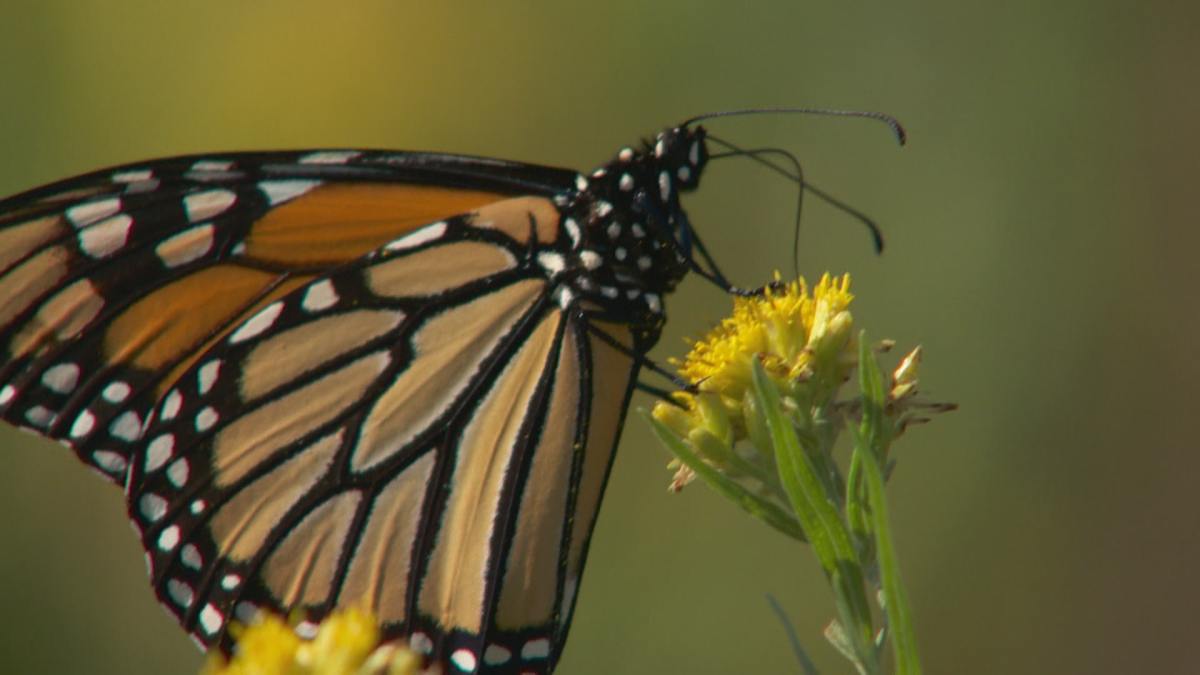Fanny packs are back in style, but it’s not only humans who are sporting them.

A new study by University of Guelph researchers, in connection with the Nature Conservancy of Canada, has equipped a pair of insect species – monarch butterflies and common green darner dragonflies – with tiny radio-transmitting ‘fanny packs’ that will help researchers track their migration.
The study’s lead researcher, Nature Conservancy program manager Sam Knight, told 680 CJOB the new technology opens up new worlds for scientists to learn about the insects around us.
“It’s pretty incredible, considering it’s very difficult to track individual insects,” she said.
“Until we were able to track them with these devices … we could only observe them by watching them fly by in the field. By tracking them over huge distances in southern Ontario, we can see it’s pretty incredible how fast and how far they’re going.”
Knight said the transmitters, which were glued to the insects’ undersides, were able to clock the dragonflies, in particular, at speeds of 77 km/h.

Get breaking National news
“Those insects would get a speeding ticket if they were driving through the city,” she said.
Knight said the dragonflies are in good shape, conservation-wise, because they have one particular trait humans like – they eat mosquitoes and other pest insects.
Monarch butterflies, on the other hand, are in a crisis due to the gradual elimination of a plant that has long been essential to their survival, she said.
“There are a few reasons they might be declining, but the largest reason we think is there’s a huge loss of milkweed.
“This is the obligate plant that monarchs lay their eggs on and that their larvae feed on, to grow into beautiful monarch butterflies.
“Unfortunately, with conversion of land from meadows to farmland and the adoption of herbicide-resistant crops, this milkweed is no longer on the landscape the way it was 20 years ago, and monarchs are being increasingly challenged to find a place to breed.”
The migration study, its authors hope, will help with conservation efforts.
Knight said the technology continues to improve, and will provide plenty of opportunities for researchers to learn even more about their tiny friends.
“We’ve only really tapped into a couple of species and only a very small part of their migration.”
WATCH: ‘Low adult mosquito population’ expected in Winnipeg this spring








Comments